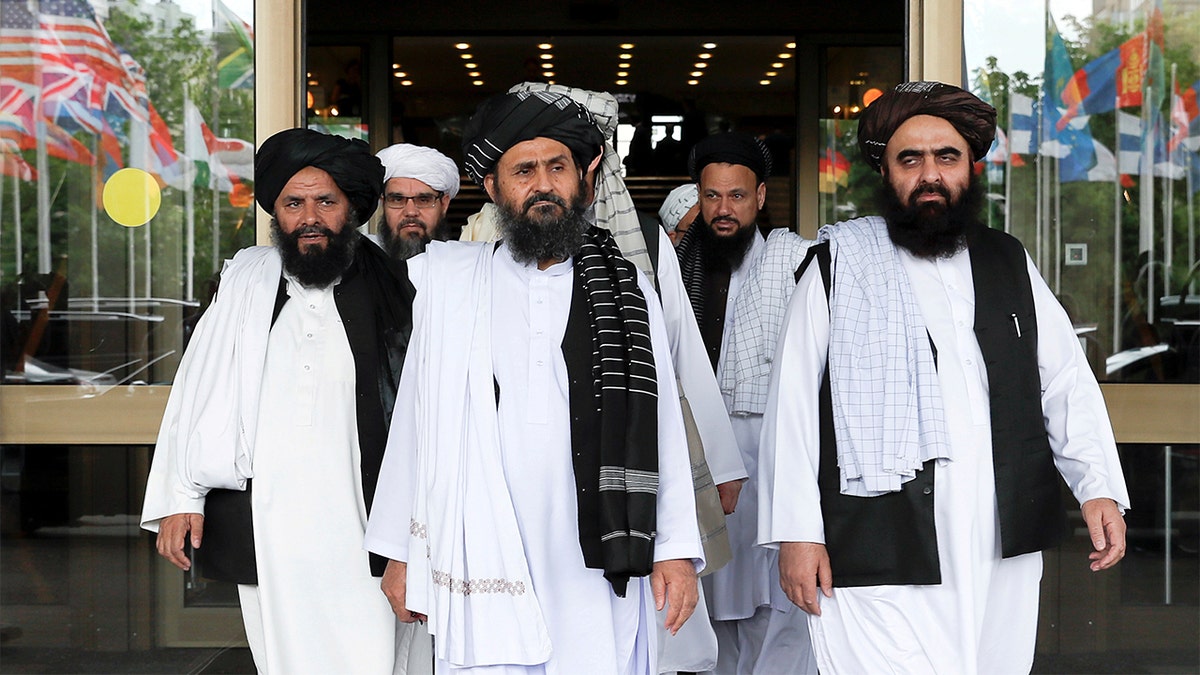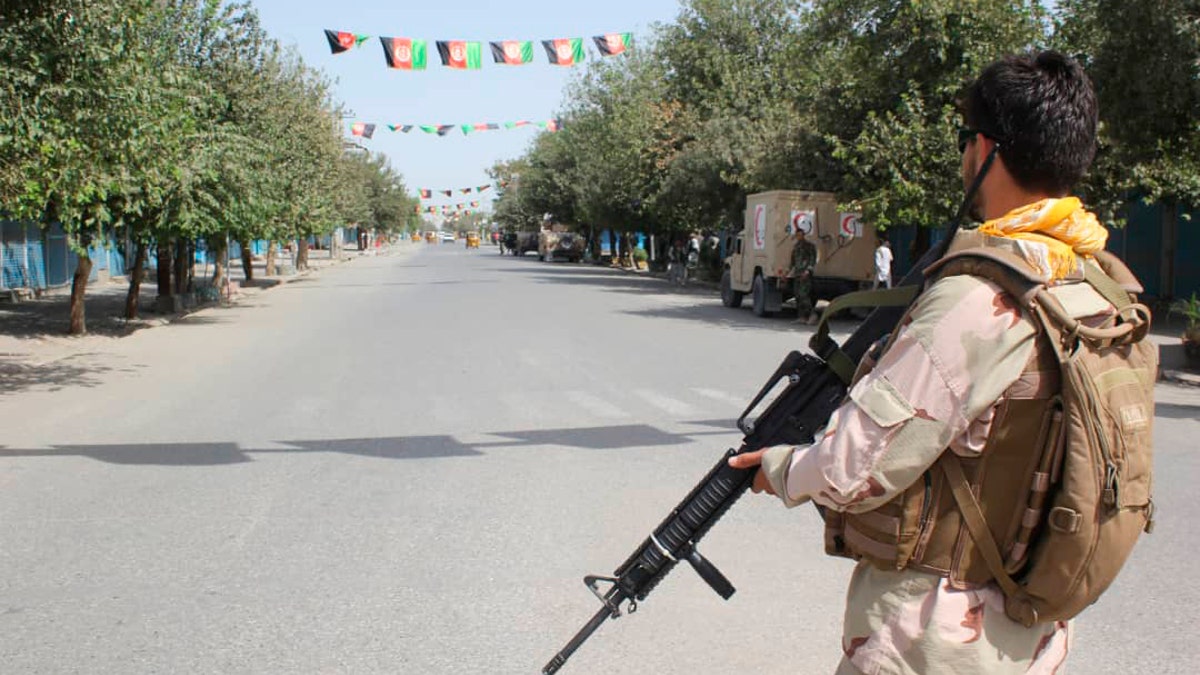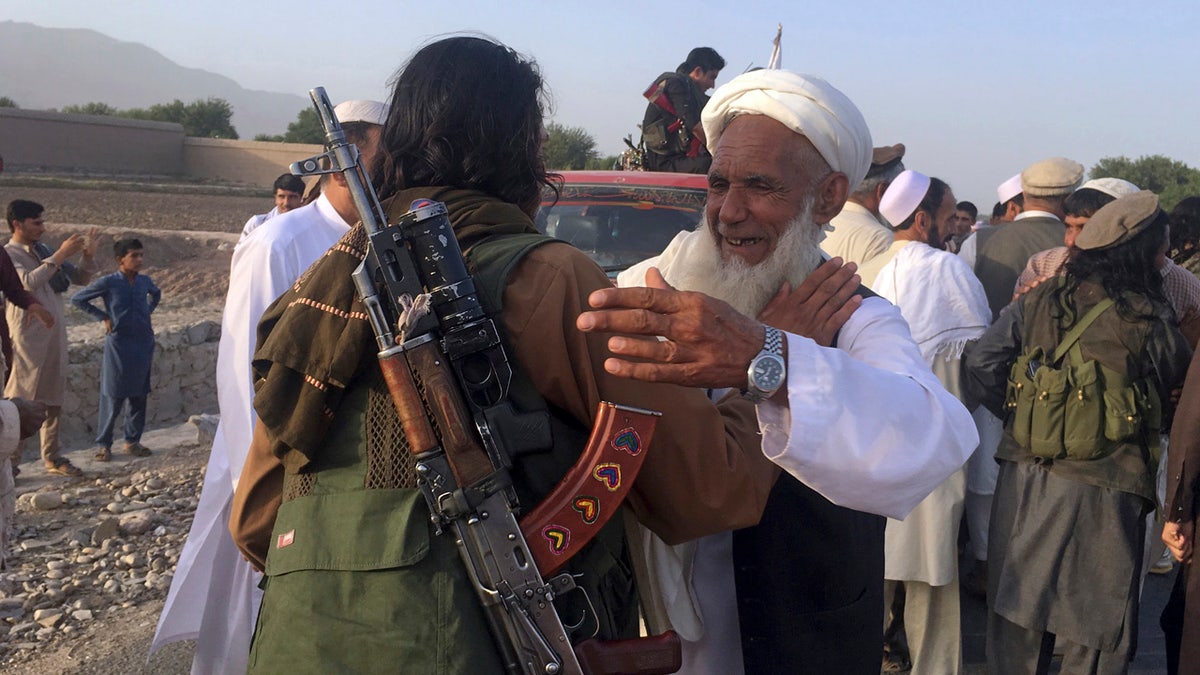The novel coronavirus, officially termed COVID-19, has killed more than 400,000 people and ravished almost all pockets of the globe – and it seems the Taliban top-brass is far from immune.
Foreign Policy reported on June 1, quoting unnamed sources, that the group's leader Mullah Haibatullah Akhundzada, potentially died after contracting the coronavirus and seeking treatment abroad, possibly in Russia.
Mullah Haibatullah Akhundzada, an Islamic scholar and Taliban deputy, was promoted into the No. 1 position in May 2016 after former leader Mullah Akhtar Mansoor was killed in a U.S. drone strike inside Pakistani territory in the Quetta region, where much of the leadership is believed to be based.
Compounding the speculation is that a new "interim" leader has been appointed: none other than Mullah Yaqood, said to be in his 30s and the son of the group's notorious founder, Mullah Mohammad Omar.
"It is well-known that Mullah Yaqoop is trying to get more power in the Taliban, and as the founder's son, he will have a certain amount of legitimacy," noted Luke Coffey, a national security and defense expert at The Heritage Foundation.

Members of a Taliban delegation leaving after peace talks with Afghan senior politicians in Moscow in May 2019. (REUTERS/Evgenia Novozhenina)
Mullah Omar's death was not confirmed by the Taliban until 2015, more than two years after he succumbed to tuberculosis.
THE AFTERMATH OF QASSEM SOLEIMANI'S DEATH AND HIS DAUGHTER'S RISE TO PROMINENCE
Representatives for the Taliban have been quick to issue a denial and accuse Foreign Policy of disseminating "propaganda." Mawlawi Mohammad Ali Jan Ahmad, a senior Taliban military official, also dismissed the claims to the publication and instead vowed that Mullah Akhundzada was "sick" after contracting the virus but was "recovering."
"It is not clear at all if Mullah Akhundzada has died from COVID-19 or if he is gravely sick and slowly recovering. We shouldn't forget that the Taliban kept Mullah Omar's death a secret for almost two and a half years, so they have a record of covering up stuff like this," Coffey continued. "Their denial could simply be telling the truth. Hypothetically speaking, if Akhundzada did die, it might benefit the Taliban to keep it quiet until a new leader is appointed. Right now, the Afghan peace process is in a delicate state."

Afghan security forces stand guard during a fight against Taliban fighters in Kunduz province north of Kabul, Afghanistan, Saturday, Aug. 31, 2019. The Taliban have launched a new large-scale attack on one of Afghanistan's main cities, Kunduz, and taken hospital patients as hostages, the government said Saturday, even as the insurgent group continued negotiations with the United States on ending America's longest war. (AP Photo/Bashir Khan Safi)
Yet within the circle of Afghan intelligence and high-ranking government sources, the fate of Akhundzada also remains unclear.
"Nobody among the Taliban talks about him being dead," said one former government official, who was not authorized to speak on the record.
Others affirmed that they simply did not know and that the matter remained under investigation.
However, deepening the confusion is that another well-placed Afghan official told Fox News that there is intelligence that Akundzada was killed months ago in neighboring Quetta, Pakistan – under opaque circumstances – but that it was kept quiet.
WHAT IT IS LIKE TO BE A CHRISTIAN ACTIVIST JAILED WITH ISIS OPERATIVES IN SUDAN
Despite the militant chief's status remaining murky, multiple sources told Fox News that the contagion has wracked havoc among all ranks of the insurgency, with a multitude of infections and an unknown number of fatalities. According to Foreign Policy, Akhundzada's deputy, Sirajuddin Haqqani, the leader of the Haqqani network known for its brutal tactics and extortion strategies, also contracted the disease.

FILE - In this June 16, 2018 file photo, Taliban fighters gather with residents to celebrate a three-day cease fire marking the Islamic holiday of Eid al-Fitr, in Nangarhar province, east of Kabul, Afghanistan. Many Afghans view Saturday's expected signing of a U.S.-Taliban peace deal with a heavy dose of well-earned skepticism. They've spent decades living in a country at war -- some their whole lives — and wonder if they can ever reach a state of peace. (AP Photo/Rahmat Gul, File)
Meanwhile, the U.S. State Department is surging forward with its commitments to the controversial U.S.-Taliban peace deal, inked in February after more than two and half years of negotiations in Doha, Qatar. The terms of the agreement include releasing thousands of Taliban members from jails across Afghanistan, as well as a drawdown of the U.S. troop presence in an eventual end to the almost 19-year conflict.
CLICK HERE FOR THE FOX NEWS APP
And Bill Roggio, senior fellow, Foundation for Defense of Democracies (FDD) and editor of the Long War Journal, concurred that no one really knows for sure if Akhundzada "is alive or dead" but is confident that support for the accord is likely to remain high regardless of who is heading the Taliban.
"This is not a peace deal. It is a withdrawal deal. Mullah Haibatullah's death, if true, will have no impact on the withdrawal deal," Roggio added. "The deal is highly favorable to the Taliban, as it secures the withdrawal of U.S. forces without the Taliban having to offer up a single concession. The Taliban is not obligated to denounce Al Qaeda, adhere to a ceasefire, negotiate with the government, or respect women and minority rights. Any future Taliban emir will gladly work to implement the deal."








































